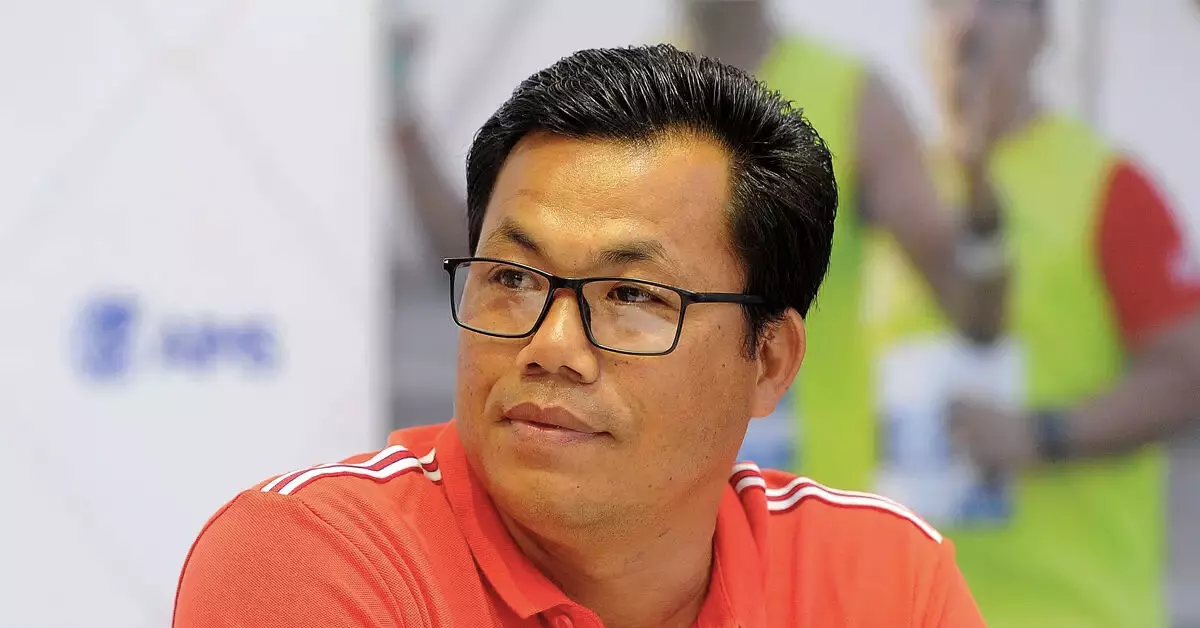India has already bagged two boxing medals at the Olympics and significant success in World Championships and Asian Games. Today India has an impressive pool of talent for boxing. However, before the likes of Vijender Singh and Mary Kom, another man had set the inspiration for many. He was Ngangom Dingko Singh, who passed away on Thursday after a prolonged illness, casting a shadow of mourning to the entire boxing fraternity.
Dingko Singh is revered as a legend of Indian boxing who brought laurels to the country by clinching a gold medal in the 54kg Bantamweight category of the 1998 Asian Games. With this, he ended India's 16 years wait for an Asian Games boxing victory. He stoked a boxing revolution in Manipur, which later produced champion boxers like Mary Kom and Sarita Devi.
Dingko was born in 1979 in the remote village of Sekta in Imphal, Manipur. He witnessed the pangs of poverty from his birth after losing his parents at an early age. Singh grew up in an orphanage getting one of the most basic facilities that could not have otherwise provided him with all the necessary requirements to be a boxer. When the Indian government started Special Area Games Scheme (SAG) to scout the natural talent from remote areas of the country, Dingko's abilities were recognised. Then onwards, Dingko's journey of progress began.
His mettle for boxing first came into the limelight when just at the age of 10, he won the Sub-Junior National Boxing title in 1989. This achievement brought Dingko into the eyes of the selectors and coaches, who began to see him as a promising Boxing star of India. He made his debut in the arena of International Boxing in 1997 and won the King's Cup 1997 held at Bangkok, Thailand. Apart from winning the tournament, Dingko Singh was also declared the best boxer of the meet.
His success at the 1998 Asian Games came at the cost of controversy. Dingko's name was initially scrapped from the squad for Indian Boxing at the 1998 Bangkok Asian Games for unknown reasons. Unable to bear the disappointment, he went on a drinking spree, but he was eventually selected at the last minute. The one opportunity he got was enough to silence all his critics punching above his weight to win the gold medal, defeating the world's third-ranked boxer, Timur Tulyakov of Uzbekistan, in the final.
For his excellence in the sport of boxing, he was awarded the prestigious Arjuna Award in 1998 and Padma Shri in 2013. His next goal was to win medals at the forthcoming National Games to be held in Imphal (from February 14 to 25) and at the Sydney Olympics in the year 2000. However, luck did not favour him this time, and he had to leave his dreams behind due to a fracture and retire from the game permanently. After this, Dingko Singh served in the Indian Navy and is now a Boxing coach with the Sports Authority of India in Imphal.
In 2017, Dingko was diagnosed with liver cancer. He underwent surgery during which almost 70 percent of his liver had to be removed. His ill health didn't permit him to work later, and as a result, he had to sell his house in Imphal to raise money for the treatment in Delhi. He had recovered really well. But there are always chances of a relapse. The relapse happened during the lockdown period and the former boxer and his wife were airlifted to Delhi from Manipur for treatment. After returning home, he contracted COVID-19 and fought with all his might to defeat the virus. However, the 42-year-old couldn't carry on with his prolonged illness. India will miss Dingko Singh who had brought a revolution in boxing.

